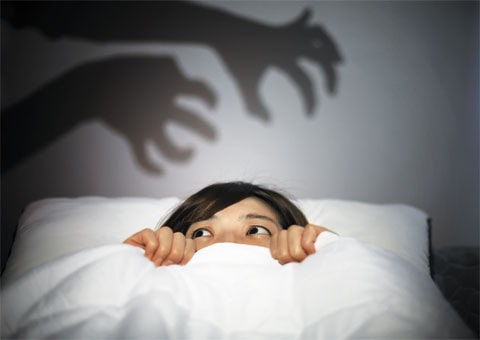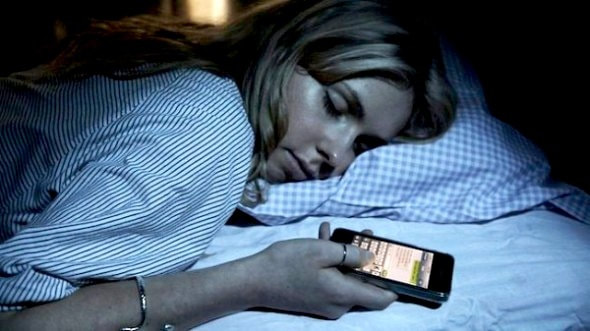|
You go to bed and the next thing you realize is your alarm clock ringing in the early morning hours. What happens in between stays a mystery for you but a nightmare for your partner in bed due to your long speeches, crazy text messages or berserk noises and grunts! Sleep is an integral part of your daily routine and as essential as food and water. We spend 1/3rd of our time sleeping and quality sleep is integral for brain activation and body functioning. Aware of the benefits and consequences, researchers/scientists are still inconclusive about the biological purpose of sleep. Insomnia is the inability to sleep properly which all of us are familiar with. Sleep apnea interrupts breathing briefly and repeatedly during sleeping but what is parasomnia? This is a term that includes all forms of sleep disorders such as sleepwalking, sexsomnia, nightmares, sleep paralysis, REM sleep behavior disorder, sleep talking and aggression during sleep except sleep apnea. While some of these are seriously connected with sleep disorders some of them are normal physiological occurrences that occur either during start of sleep, during sleep or while getting up from sleep. While sleeping, the brain fluctuates between wakefulness, nonrapid eye movement (NREM) sleep and rapid eye movement (REM) sleep. NREM further consists of four stages (1-4) and parasomnia commonly occurs when the transition between these stages are blurred (prominently present during the stage 3-4 transition and the awake stage). Sleepwalking This is the most-popular type of parasomnia all-the-more popular due to its depiction in movies and stories! Sleepwalking is the result of a series of complex behaviors that occurs when the patient is in an altered state of consciousness. This happens mostly during the stage three NREM sleep, a stage during which individuals cannot be woken up so easily and hence, makes sleepwalking a bit terrorizing as the sleepwalker is physically active but still in a deep state of sleep. Sleepwalking includes a series of activities and the most common ones include sitting up in bed in a confused state, fumbling with the bed cloth and then walking with open eyes. Heredity is the most common cause for this sleepwalking behavior while sleep deprivation, touch, noise, stress, anxiety, alcohol and medications are also potential causes. Sleepwalking rarely causes harm to the walker as well as the people around him/her. Sleep terrors & Sleep starts Sleep terrors last anywhere between 30 seconds and five minutes where the individuals sits up in the bed, emits a loud scream and starts displaying intense fear. He/she may shout in a threatening manner and run out of the bed assuming something harmful and this might lead to injury to the individual or the people surrounding him/her. While asleep, we often feel like falling off the bed or a tall mountain and our whole body gives a solid jerk trying to safeguard itself. Such jerks can occur in any individual of any age but mostly seen in adults 60-70% of the time. This is not a sleep disorder but is only due to muscle contractions that last for less than 1 second when the person is about to fall asleep or is in a light state of sleep. Sleep texting This has no confirmed scientific evidence but sleep texting is commonly present among adolescents. Media reports exist where teenagers accept sending some meaningful or unmeaningful text messages to their friends during sleep. Texting among teenagers is at an alarmingly high rate and such individuals often send more than 100-200 messages each day. This prompts them to pick their mobile and send some message to some person unknowingly even during sleep.  Countless Nightmares Destroy Inner Peace during Sleep Countless Nightmares Destroy Inner Peace during Sleep Sleep-related eating disorder This is often seen during sleepwalking when the individual gets out of bed, goes to the fridge, picks up a snack and eats it, all of these without waking up actually. It is mostly high-calorie foods and beverages that are preferred by the sleep walker and consumed in a rapid manner as though someone is going to curb their eating at any point of time. Rarely, the individual might even consume unusual foods such as uncooked butter slices or even toxic substances such as uncooked chicken directly from the fridge. The affected individual is totally unaware of his/her acts and all that can indicate such behaviors are leftover plates, empty food containers and wrappers strewn around the house the next morning. There are plenty other eating disorders apart from sleep-related ones explained at www.firsteatright.com. Please go through the list to rule out any of its presence in your life. Sexsomnia With only 95 cases reported till date, sexsomnia is mostly common among the male population (67-81%). A common form of parasomnia, sexsomnia involves display of sexual affection, using words that promote sexual acts, intercourse/attempted intercourse during sleep followed by morning amnesia. Just like sleepwalking, sexsomnia occurs in the NREM stage of sleep and is often embarrassing as the sleeper might disturb or end up assaulting his/her sleeping colleague/friend/family or partner. It is also disturbing when complaints are lodged against such individuals as they are totally unaware of their acts the previous night and have not done any of it intentionally. Some even consider suicide to put an end to all this misery. Treatment only involves psychotherapy sessions to manage stress and reduce the occurrence of this act. Dream Enactment REM sleep behavior disorder is characterized by performing actions while still asleep, something similar to sleepwalking. As the name suggests, this happen during the REM stage (dreams mostly come at this stage) of sleep. Individuals with this disorder either act out or respond physically to their dreams and this might not be good for the affected person and those around the individual too! Physical violence is not seen much and if displayed, it is present more in men than women with this disorder. Antidepressants used for the first time can cause this disorder and so can stimulants such as alcohol, coffee and chocolate. Often present in individuals above the age of 50, REM sleep behavior disorder is a well-established risk factor for neurodegenerative disease. Nightmare disorder Dreams and nightmares are common in every person’s life. What if these nightmares occur multiple time every night? This is nightmare disorder which includes recurring nightmares that involve anger, anxiety or disgust that can leave the individual wide awake. More the nightmares, less is the well-being of the individual. Nightmare disorder can occur in both, REM and NREM states of sleep and is a part of both, acute stress disorder and post-traumatic stress disorder. All the disorders listed above might seem fictional or something like a movie. Yes, they are fascinating and rare but need to be addressed immediately to avoid negative consequences. Improving sleep hygiene, avoiding substance abuse, using proper medications and avoiding sleep deprivations can promote deep sleep and prevent such disorders from ruining our lives. Comments are closed.
|
AVOID FRAUD. EAT SMART.+91 7846 800 800
AuthorDietitian & Nutritionist Dr. Nafeesa Imteyaz. Archives
July 2024
Categories
All
Dr. Nafeesa's Blog @blogspot |
- Home
- Written Testimonials
- Consult
- Clinics
- Blogs
-
Diet & Nutrition
- Diabetes Reversal
- IVF IUI not needed for PCOS PCOD Infertility
-
Medical Nutrition
>
-
Disease & Conditions
>
- Infertility | PCOS
- Diabetes Mellitus
- Cholesterol
- Hypothyroid
- Kidney Problems
- Hypertension
- Cardiovascular Diseases
- Liver Diseases
- Gastro intestinal disorder
- Cancer
- Metabolic Disorders
- Orthopedic Disorders
- Eating Disorders
- Dietary Recall
- Weight Record Filled By Clients
- Online Payment Transaction Details
- Online Clients Weight Check Form
- Our Program Package Service Charges
- Weight Record 2017 Clients
- Measurements sent by Clients
- Terms & Conditions Of Payment
- Thanks. Your Form is Submitted
- Video Testimonials
- Lifestyle & Wellness
- Lifestyle & Wellness Blog
- Allergy & Intolerance
- Weight Loss / Gain
- Weight Loss / Slimming Blog
-
Disease & Conditions
>
- Life Cycle Nutrition >
- Sports Nutrition >
- Integrity in Nutrition
- Knowledge Centre
© COPYRIGHT 2022. ALL RIGHTS RESERVED. FRST HEALTHCARE PVT LTD.
Dr. Nafeesa Imteyaz of First Eat Right clinic, is the Best Dietitian Nutritionist in Bangalore. Best Dietitian Nutritionist in Pune. Best Dietitian Nutritionist in Hyderabad. Best Dietitian Nutritionist in Chennai. Best Dietitian Nutritionist in Mumbai. Best Dietitian Nutritionist in Delhi. Best Dietitian Nutritionist in Kolkata.



